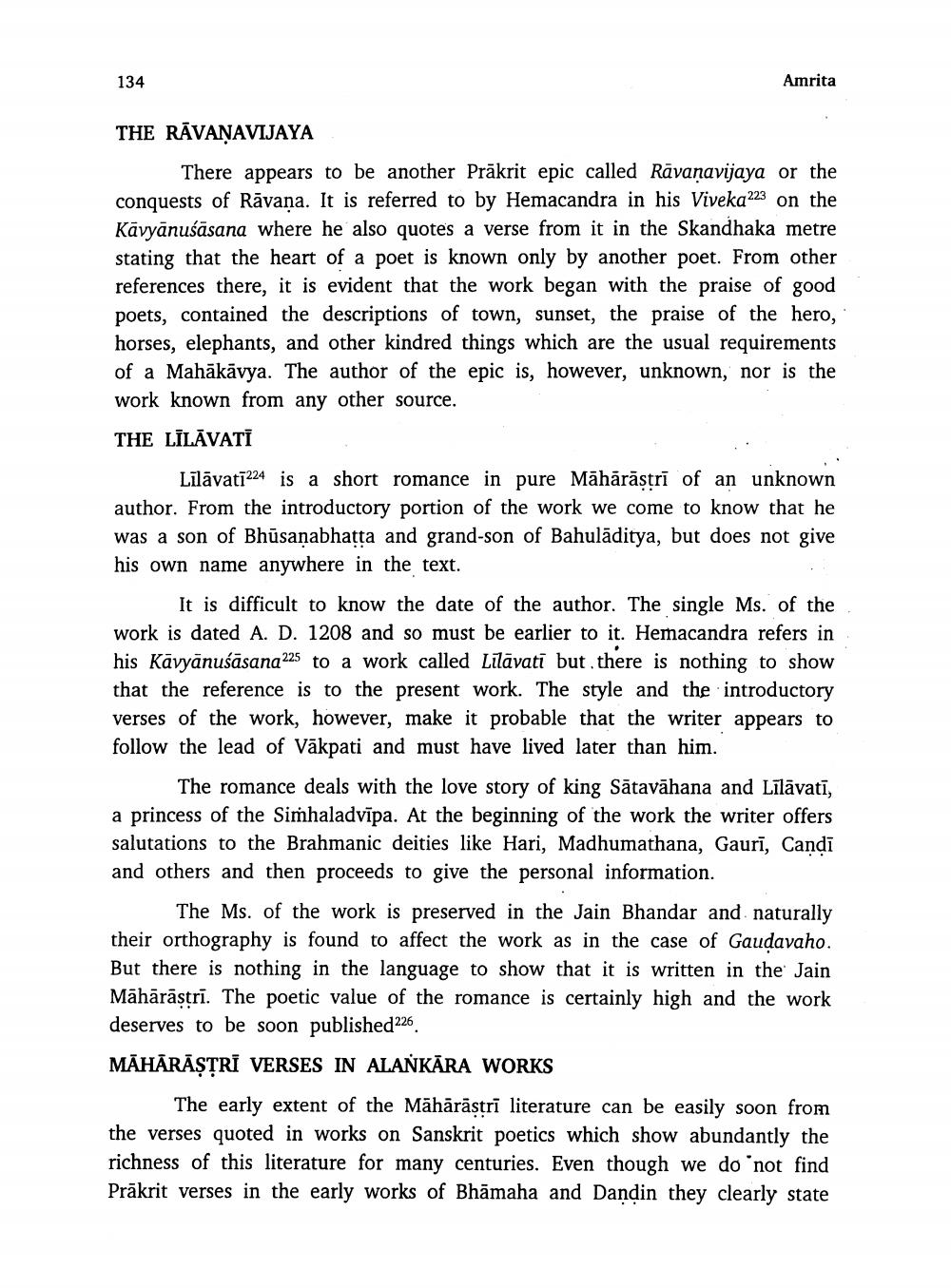________________
134
Amrita
THE RĀVANAVIJAYA
There appears to be another Prākrit epic called Rāvanavijaya or the conquests of Rāvana. It is referred to by Hemacandra in his Viveka223 on the Kävyänušāsana where he also quotes a verse from it in the Skandhaka metre stating that the heart of a poet is known only by another poet. From other references there, it is evident that the work began with the praise of good poets, contained the descriptions of town, sunset, the praise of the hero, horses, elephants, and other kindred things which are the usual requirements of a Mahākāvya. The author of the epic is, however, unknown, nor is the work known from any other source. THE LĪLĀVATI
Līlāvatī224 is a short romance in pure Māhārāstrī of an unknown author. From the introductory portion of the work we come to know that he was a son of Bhūsanabhatta and grand-son of Bahulāditya, but does not give his own name anywhere in the text.
It is difficult to know the date of the author. The single Ms. of the work is dated A. D. 1208 and so must be earlier to it. Hemacandra refers in his Kavyānusāsana225 to a work called Lītāvati but there is nothing to show that the reference is to the present work. The style and the introductory verses of the work, however, make it probable that the writer appears to follow the lead of Vākpati and must have lived later than him.
The romance deals with the love story of king Sātavāhana and Līlāvatī, a princess of the Simhaladvīpa. At the beginning of the work the writer offers salutations to the Brahmanic deities like Hari, Madhumathana, Gaurī, Candi and others and then proceeds to give the personal information.
The Ms. of the work is preserved in the Jain Bhandar and naturally their orthography is found to affect the work as in the case of Gaudavaho. But there is nothing in the language to show that it is written in the Jain Māhārāstri. The poetic value of the romance is certainly high and the work deserves to be soon published 226. MĀHĀRĀȘTRĪ VERSES IN ALANKĀRA WORKS
The early extent of the Māhārāstri literature can be easily soon from the verses quoted in works on Sanskrit poetics which show abundantly the richness of this literature for many centuries. Even though we do not find Prākrit verses in the early works of Bhāmaha and Dandin they clearly state




